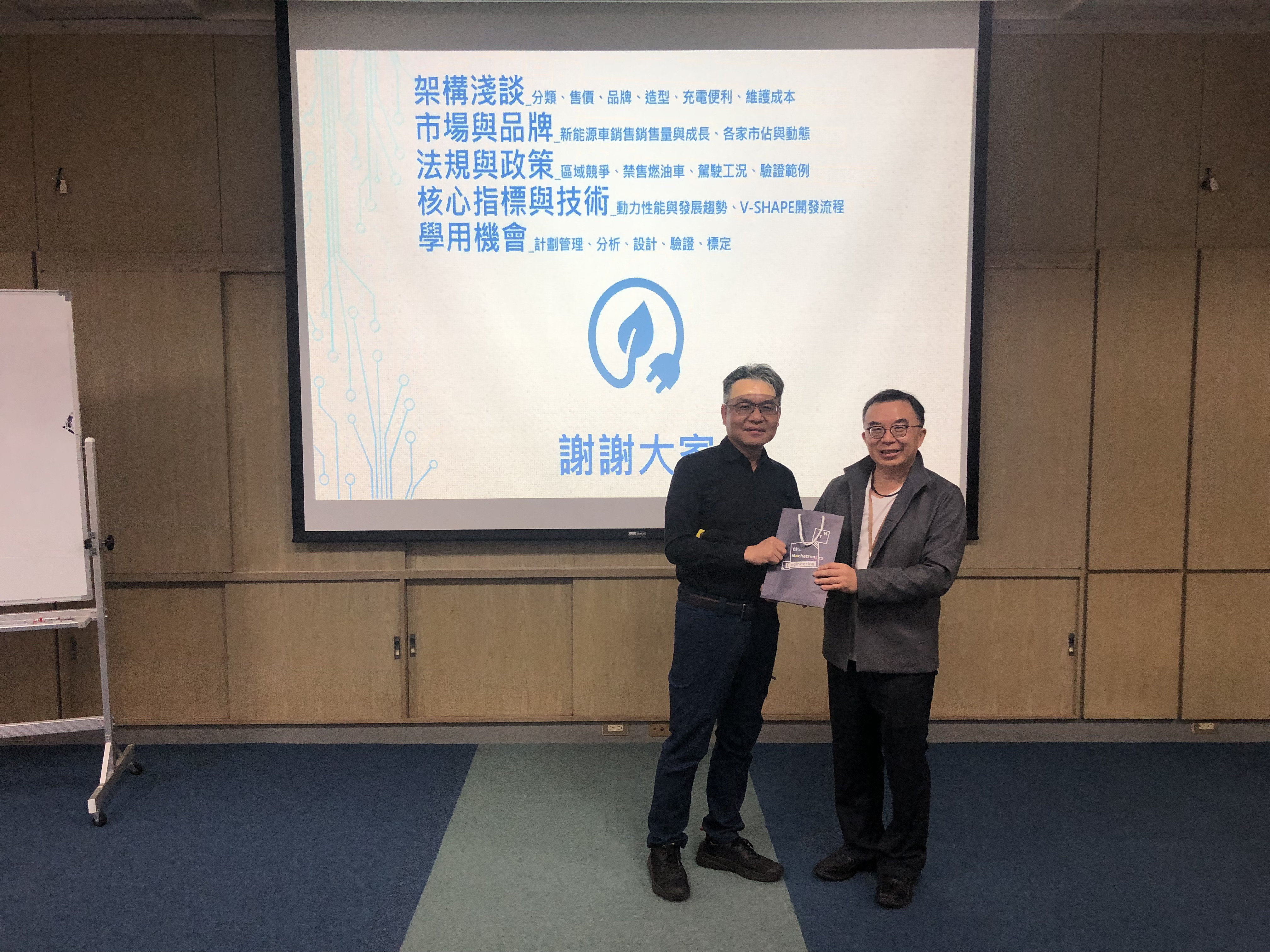
講者提到電動車相比傳統內燃機車,電動車不會排放有害氣體,減少了空氣污染的程度,但在生產時卻並不一定較環保。講者也講述電動車的前景與目前的情況,未來十年或二十年電動車將逐漸取代燃油車,隨著科技的不斷發展,電動車將成為未來交通的主流。另外,講者也提到消費者最在乎的是便宜、好開及安全,但對業者來說可能更在乎成本、重量、體積、動力性甚至是消費者信賴度,顯示兩者關心的焦點存在差異性。 講者還從法規角度出發,探討各國政府對電動車發展的現況,也特別提到了台灣消費者對電動車的態度,顯示電動車在未來將是十分主流的車種。
撰寫者:大學部學生 江彥辰
The speaker mentioned that compared to traditional internal combustion engine vehicles, electric vehicles (EVs) do not emit harmful gases, thus reducing the level of air pollution. However, their production process is not necessarily more environmentally friendly. The speaker also discussed the prospects and current situation of electric vehicles, stating that in the next ten to twenty years, EVs will gradually replace fuel vehicles. With the continuous development of technology, electric vehicles will become the mainstream mode of transportation in the future. Additionally, the speaker noted that while consumers care most about affordability, ease of driving, and safety, manufacturers might be more concerned with costs, weight, volume, power, and even consumer trust, highlighting the differences in priorities between the two groups. From a regulatory perspective, the speaker explored the current status of governments' support for the development of electric vehicles around the world and specifically mentioned the attitude of Taiwanese consumers towards EVs, indicating that electric vehicles will be a very mainstream type of vehicle in the future.
Author: Bachelor student, YAN-CHEN , JIANG